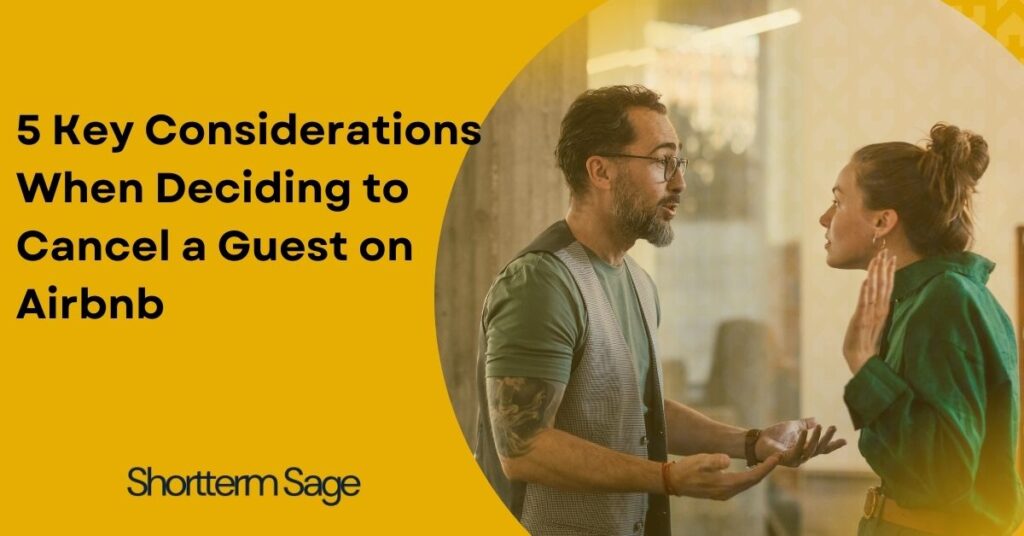
Managing an Airbnb can be a rewarding yet challenging endeavor. One of the most complex decisions a host may face is whether to cancel a guest’s reservation. This blog post will explore critical aspects to consider before making that decision, ensuring you maintain a positive hosting experience while protecting your property and investment.
In recent years, the landscape for cancellations has evolved significantly, especially post-COVID. Hosts now have more flexibility regarding cancellations, particularly Superhosts, who can cancel a certain percentage of reservations without severe repercussions. Understanding these changes can help you navigate the cancellation process more effectively.
Previously, Superhosts were almost forced to keep their bookings, with limited options for cancellation. Now, hosts can cancel approximately ten percent of their reservations, allowing for more leeway when dealing with uncomfortable situations.
One of the most vital skills a host can develop is the ability to identify red flags in guest behavior. It’s not uncommon to experience guests who may have ulterior motives for their stay, such as throwing a party or violating house rules. Pay attention to the details in their communication.
Having clearly defined house rules is crucial for managing your Airbnb effectively. These rules not only set expectations but also serve as a protective measure for you as a host. Here are some key components to include:
By having these rules in place, you can refer back to them if you need to cancel a reservation due to a guest’s non-compliance.
Canceling a guest’s reservation can have repercussions on your hosting reputation. While it may be necessary in certain situations, it’s essential to weigh the potential fallout. Here are some points to consider:
Before deciding to cancel a reservation, explore alternatives that may allow you to keep the booking while ensuring your property remains protected. Here are some strategies:
These alternatives may help you maintain the booking while still addressing your concerns as a host.
Deciding whether to cancel a guest on Airbnb is not a decision to take lightly. By understanding the current landscape of cancellations, identifying red flags, establishing clear house rules, considering the impact on your reputation, and exploring alternatives, you can make informed choices that protect your property while providing a positive experience for your guests. Remember, effective communication and proactive management can go a long way in ensuring your hosting journey remains successful.
Our reviews are made by a team of experts before being written and come from real-world experience. Read our editorial process here.
Some of the links in this article may be affiliate links, which can provide compensation to us at no cost to you if you decide to purchase a paid plan. These are products we’ve personally used and stand behind. This site is not intended to provide financial advice. You can read our affiliate disclosure in our privacy policy.
About the author:
This website is operated and maintained by Short Term Sage LLC. Use of the website is governed by its Terms Of Service and Privacy Policy.
Short Term Sage LLC may link to content or refer to content and/or services created by or provided by third parties that are not affiliated with Short Term Sage LLC. Short Term Sage LLC is not responsible for such content and does not endorse or approve it.
We use cookies to help improve, promote and protect our services. By continuing to use this site, you agree to our privacy policy and terms of use.